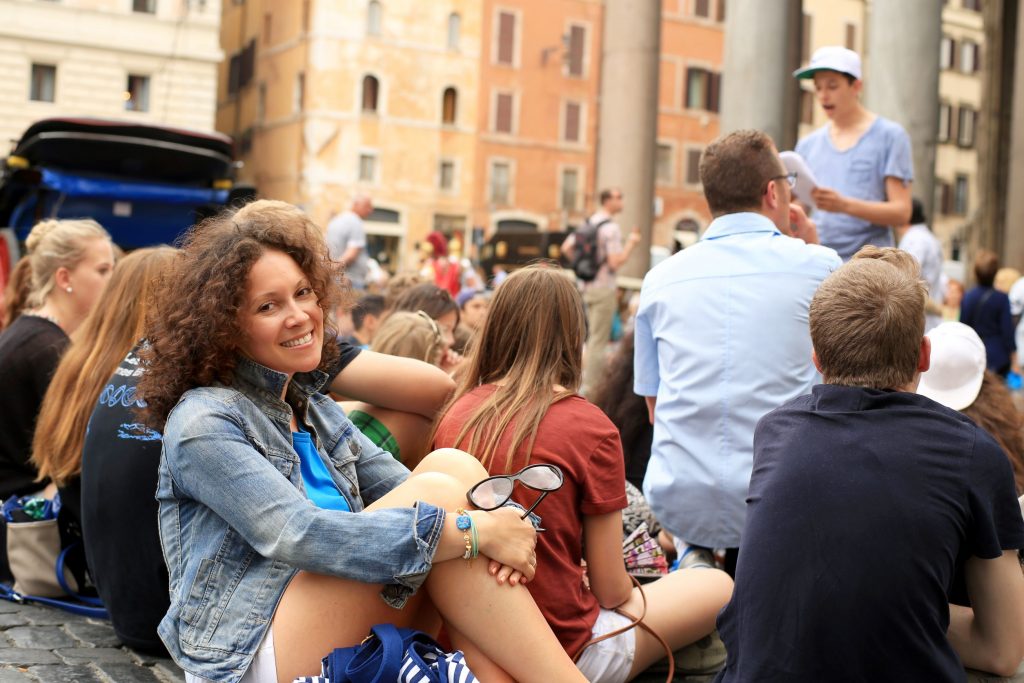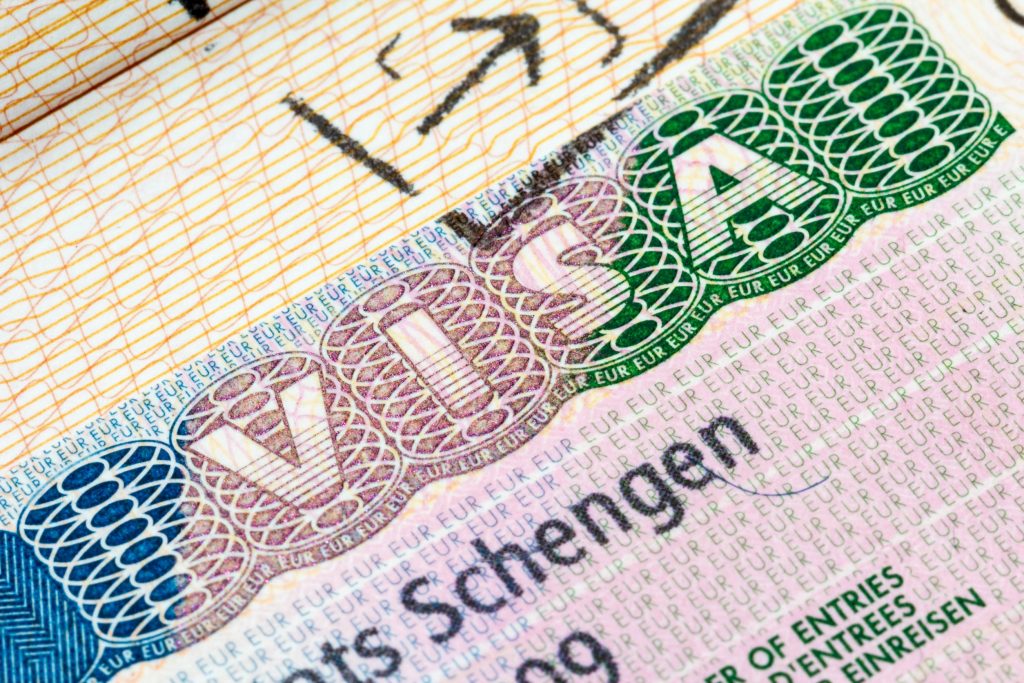
The best European vacation is one that feels like a transformative experience. It’s a chance to reconnect with old friends, meet new ones and explore a continent. A trip to Europe is a great opportunity to break out of your routine and explore new places. It’s an even better opportunity to plan your best trip ever.
But, planning a European vacation can be overwhelming, especially if you’re not a travel veteran. Don’t worry, there are plenty of resources available to help make your experience as stress-free as possible.
In this post, we’ll cover some of the best ways to make the most of your vacation. Whether you’re planning a weeklong getaway to explore a nearby city or a multi-week camping trip in the countryside, you’ll find tips that will help you have a great time.
Here are some of the best ways to have a fantastic European vacation.
1. Book your flights and accommodations as early as you can

While this may not be possible for all travellers, it’s a good idea to book your flights and accommodations as early as possible. This requires some foresight, but it is well worth the effort.
For example, if you have a specific date in mind for your travels, book your flight at least six months in advance. If you are flexible, you can probably book your accommodations a few months ahead of time, as well. If you can make these reservations as far ahead as possible, you’ll have better flexibility with your vacation dates when they come around.
Another benefit of booking as far ahead as possible is that you’ll save money. Most airlines and hotel chains offer great discounts if you book at least several months in advance.
2. Get a good deal on your hotel
Hotel prices in Europe are often much cheaper than in the U.S., but booking a hotel through a travel booking site like Expedia, Travelocity, or Hotels.com can result in a substantial discount.
When booking on a travel site, you’ll want to ensure you’re only booking hotels that are physically located in the country you want to visit. For example, if you plan to visit Spain, you’ll want to only book a hotel in Spain, not in France. You’ll also want to go through a customizable search to narrow down your selection.
3. Make sure you have a valid passport and EU visa before you go
It’s important to make sure you have your proper documentation before you go on vacation. A passport is the most important document you have, as it lets you travel to other countries. Make sure your passport is valid for at least six months after your departure date and has at least two blank pages.
Whether you’re travelling internationally or domestically, it’s important to have your passport with you at all times. Travelling without a passport is a big mistake and can land you in serious trouble with the law.
If you have a visa that allows you to enter the country you’re travelling to, you have to make sure to bring your passport and visa with you when you enter the country you’re visiting.
Make sure to keep your passport and visa in a safe place where you can easily get to them. This includes your wallet, your purse, or even on your nightstand. If you lose your passport, you might lose your ability to travel.
If you’re travelling internationally, make sure to check in with your consulate before you leave. Most consulates can give you an emergency passport and let you know if there’s a waiting period if you need to get an expedited passport.
4. Know the weather in Europe
Weather can make or break a trip, so it’s worth studying the climate in each destination you plan to visit. Some countries, like Spain, Italy, and Portugal, get pretty warm in the summer. So you won’t need a heavy winter coat. Other countries, like France, Germany, and the Nordic countries, will likely be chilly early in the year and never really warm up until the end of July or August. You’ll want to bring both a light jacket for cool days and a heavy coat for cold weather.
5. Make a packing list
This is perhaps one of the most important aspects of planning a great vacation. As you prepare for your trip, keep a careful eye on your packing list. You don’t have to bring as much as you think; you just have to bring what’s truly needed.
Essentially, you should bring one carry-on bag and one backpack. This will allow you to keep your electronics and other important items in one place and have less to pack. You should also be sure to keep your packing list as concise as possible. If you find yourself going down a handful of packing “paths,” you might find yourself bringing items you don’t need.
6. Pack a light bag
Europe is a beautiful place, but it’s a lot of walking. It’s easy to get out of shape while travelling, and it all starts with your bag. Make sure you have a lightweight bag that you can easily carry on your back. Invest in a carrying case with shoulder straps, or bring a backpack. This will help you avoid back pain, which is a common problem for travellers.
Be sure to bring comfortable shoes that you can wear for hours at a time. If you’re bringing a laptop, make sure it’s small enough to fit in a backpack or carry-on. Also, remember that you’re a tourist, so you’ll have to go through thorough security checks, which often involves taking your electronics out of your bag. Make sure your bag is small enough that you won’t have to take it apart too many times.
7. Be flexible with your travel dates

Vacation dates are always a bit of a crapshoot, but they can be especially variable when it comes to Europe. You can easily find travel guides and websites that offer advice on the best times to visit a particular city. In some destinations, the summer months are much busier than the off-season. The best way to get a feel for the right time to visit a city is to simply go. Explore the city’s sights, eat at local restaurants, and meet the locals. As you get a feel for the right time, you’ll also get a feel for the right dates to travel.
8. Check out some of the lesser-known destinations
There are plenty of amazing places in Europe, but some of the lesser-known destinations are worth visiting, too. For example, Denmark is an incredibly beautiful country, and it’s not nearly as crowded as some of the other popular European destinations. Other countries, like the Czech Republic and Slovakia, are affordable and offer amazing historic cities and local cuisines. And while these destinations aren’t as popular as others, they’re worth a visit.
9. Stay connected with free internet
Most European hotels will offer some form of free internet. But even if they don’t, you can usually find a park or public space with free Wi-Fi nearby. Before booking your trip, research the internet coverage in Europe and make sure you have a way to get online when you’re there.
Make sure you have a way to get online, such as a smartphone or a laptop, so you can plan your trip and keep up with work while you’re away.
10. Get a SIM card for your smartphone
If you’re planning to spend time in Europe using your smartphone, you should get a European SIM card. Be sure to check the coverage maps for each country you’re visiting. Even if the map says there’s good coverage, you may still have trouble depending on where you are.
11. Check train times before you go
One of the best ways to save on travelling is to plan ahead. Check the train schedule for the cities you’re visiting before you go. This can help you avoid long lines when you arrive at the station. You can also use online timetables to see if there are any cheaper direct trains that you can take.
You may also want to check the city’s public transit website for routes and schedules. This can often be more comprehensive and up-to-date than the train schedule. Make sure to check the local transportation website or call your transit authority before you go. Better yet, plan and live somewhere with great public transportation.
12. Join a tour group or rent a car while you’re there

If you’re going to Europe on your own, you may want to consider joining a tour group or renting a car. This can help you avoid the stress of travelling on your own. It can also make it easier to visit the main attractions if you’re not familiar with the city. If you’d rather travel independently, there are plenty of guidebooks and travel guides available online. It’s also important to make sure you’re familiar with your destination’s rules and customs before you go.
13. Have a local guide
A local guide can help you navigate the city and take you to the best restaurants and sights. Local guides are licensed by the city and can help you navigate the city, get recommendations for the best restaurants, and show you the best sights. Some cities, like Paris, even have official guides that you can book through the local tourism board. These guides get up-to-date recommendations for the city’s best sights and help you navigate the city with ease.
If you don’t want to pay for a guide, you can often find people on Couchsurfing (or similar sites) who are willing to host you and show you the city for free. However, keep in mind that you’ll have to pay for your food, transportation, and accommodations.
14. Eat at local joints
A lot of travellers go on vacation to eat at fancy restaurants, but you might be able to save money by eating at local joints instead. In Europe, you’ll find local cuisines in most cities, no matter the country. So consider dining at a local restaurant for your meals. You may be surprised by how affordable eating at a local place can be. While it’s important to keep an open mind, don’t go overboard and eat at a local pub every night. You can still eat well while saving money while you’re on vacation.
15. Avoid big cities during peak hours
While you’re in a city, make sure you avoid visiting the main attractions during peak hours. This can help you save some money on admission fees. However, it’s important to visit the main attractions while you’re in a city.
If you visit during off-hours, you can often see museums and attractions at a lesser price. You can also explore your city at your own pace, and if you want to stop for food or shopping, you can do that at a more reasonable time.
16. Visit the main highlights
Plan a good amount of time to visit the main attractions while you’re in Europe. This can help you avoid spending too much time in lines and reduce the amount of money you spend. It also gives you more time to explore the city and enjoy your vacation. You don’t have to visit every single museum and historic site in a city. Instead, choose the main attractions that you want to visit. Also, make sure to visit those attractions during off-hours so that you can avoid the busy times.
17. Get a feel for the locals and their culture
While you’ll almost certainly be spending most of your time in Europe travelling to tourist sites, you can also learn a lot about the cultural differences between countries by spending a little time in each. Arrange to meet a local host or attend a local event, such as an expat meet-up in your destination country. Educate yourself on the local culture by talking to locals, seeing what information is available online, and immersing yourself in the culture as much as possible.
18. Avoid the crowds and stick to your itinerary
Crowds can be one of the biggest downsides to travelling to Europe. Especially in major cities, it’s easy to get caught up in the buzz of tourist attractions and forget the true beauty of the cities you’re exploring. The best cities to travel to in Europe are those with a small local population and few large tourist attractions. In cities like Paris, and Amsterdam, you can easily explore the city centres and avoid the crowds by sticking to the backstreets. This is also a good plan for exploring any Mediterranean city since many are smaller in scale than Western Europe is used to.
19. Always carry a photocopy of your passport

This may seem like a no-brainer, but make sure you have a photocopy of your passport with you at all times. This includes in your wallet, as well as on your person (either literally or in your back pocket). It’s a good idea to keep a photocopy of your passport on you during your travels, no matter what.
Final words: Is a European vacation for you?
Now that you’re a little more informed about travelling Europe, are you ready for the adventure? One of the best things about travelling to Europe is how accessible it is. There are affordable flights from just about every major city in North America and Europe, meaning that even budget-conscious travellers can experience Europe.
Another great thing about travelling to Europe is the variety of options. Whether you want to experience the great cities of Western Europe or the historic sites in the Mediterranean, there are endless options for a great European vacation.
And finally, one of the best things about travelling to Europe is the people you’ll meet. From the friendly locals in Paris to the helpful expats in Rome, Europe is full of interesting and welcoming people.
With a little research and preparation, you’ll be well on your way to a great vacation!
